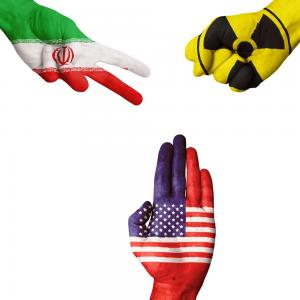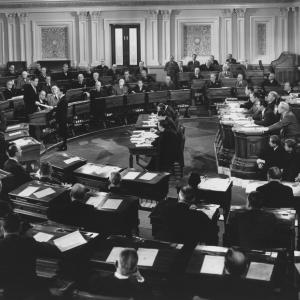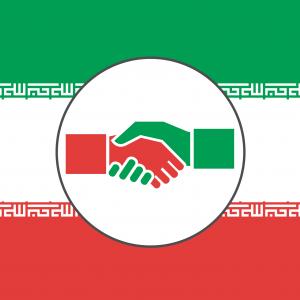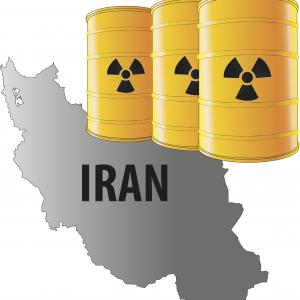

Iranians tend to trust religion far more than they do politics. Accordingly, it could be helpful to formulate a potentially helpful Track Two initiative around Iran’s openness to religion as a precursor to discussing important secular issues. One possibility that comes to mind, especially if the current negotiations lead to further openness, is what one might call a “peace game.” Since Iran has been the focus of any number of war games, this would represent a peacemaking counterpart. However, rather than a scenario-driven exercise as most war games tend to be, a peace game would be more akin to facilitated brainstorming.
The basic concept would call for bringing participants from Iran and the United States together for a week to discuss what the Iranians proposed earlier, i.e. how to overcome the obstacles that stand in the way of a cooperative relationship. Participants for the game would be chosen from the ranks of respected religious, political, academic, and professional figures who (1) are not in government, (2) are known to be spiritually minded, and (3) have views that would command serious consideration by their respective governments. A religious framework for the discussions would be established at the outset, a world-class expert on negotiations would facilitate the “game,” and the final recommendations would be presented to both governments for appropriate consideration.

After a decades-long standoff, Iran and the West (plus China and Russia) have signed an interim agreement to halt Iran’s nuclear program in exchange for modest sanctions relief. While some are calling it a historic breakthrough along the lines of Nixon’s visit to China, the U.S. media has been mostly skeptical. And in a rare display of bipartisanship, Congress is already looking for ways to derail the deal by passing legislation to impose new sanctions on Iran and tie the President’s hands for future negotiations. Despite the fact that President Obama has successfully passed tougher sanctions on Iran than any previous administration, the U.S. media in lockstep with Congress continue to thumb their noses at anything that resembles diplomacy when it comes to Iran. And while other U.S. allies in the region — primarily the Gulf States led by Saudi Arabia — have expressed their concerns over this deal, few Americans care about what the Saudis think. As representatives of the American people, what Congress really cares about is what Israel thinks.
That’s where things get dicey.

The nuclear deal that the U.S. just struck with Iran is nothing short of historic. This agreement is a victory for everyone who wants to prevent a nuclear-armed Iran and a catastrophic war.
The deal is one of the many triumphs that have resulted from the great American tradition of negotiating with adversaries to advance U.S. interests. President Kennedy's talks with Premier Khrushchev delivered the world from the brink of nuclear war. Ten years later, President Nixon's visit to Mao's China revolutionized the U.S. role in Asia, and the world. A decade later, President Reagan's diplomatic engagement of President Gorbachev achieved historic nuclear arms reductions.
UN weapons inspectors are now on track to peacefully disarm Syria of its chemical weapons because Washington was willing to engage the Syrian regime through diplomacy with Moscow, rather than through Tomahawk cruise missiles. And under the deal reached in Geneva this weekend, Iran will stop advancing its nuclear program for the first time in nearly a decade.
Iran's nuclear program will now be under an expanded inspections regime to help ensure that Iran's nuclear program is used for purely peaceful purposes. In exchange, Iran will receive modest sanctions relief.
Make no mistake: this is a good deal, and it should be protected so that our diplomats have the space to negotiate a final agreement to prevent war and a nuclear-armed Iran once and for all.

The nuclear agreement with Iran is a triumph of diplomacy. It stops the expansion of Iran’s nuclear program, rolls back some of its most worrisome elements, establishes more rigorous monitoring to guard against cheating, and suspends some sanctions on the Iranian people.
If implemented, this agreement will significantly reduce the potential nuclear threat from Iran and enhance the security of Israel and other states in the region. Secretary of State John Kerry and President Barack Obama deserve credit for supporting the diplomatic effort.
The agreement includes a commitment from the U.S. and its allies to “not impose new nuclear-related sanctions for six months.” This means that the U.S. Senate must defer any further sanctions measures to allow compliance to proceed.